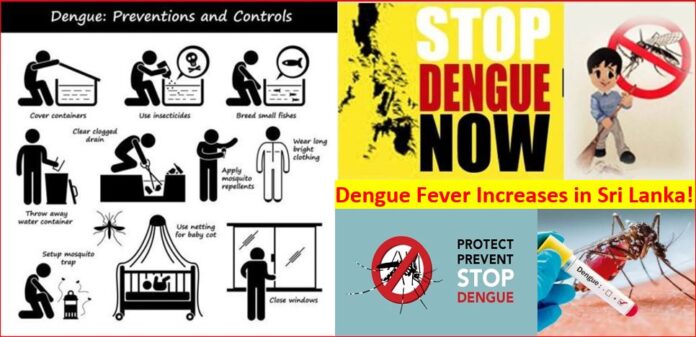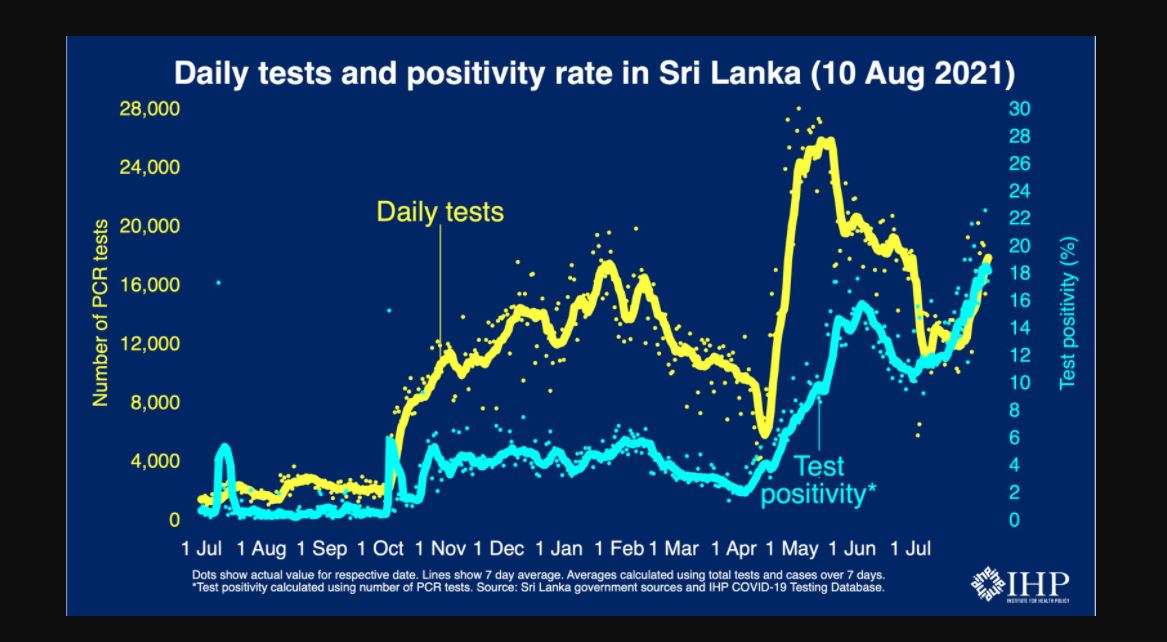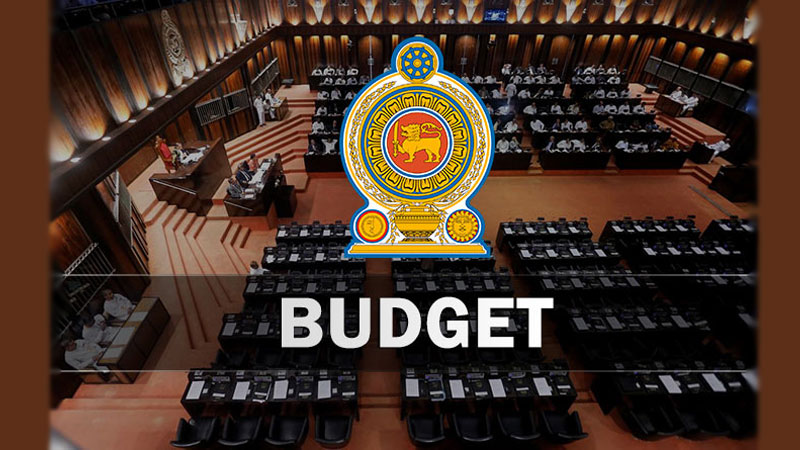So far this year 2021 according to EPID data, 9436 dengue cases report and 4 deaths report. Dengue fever increases in Sri Lanka, usually soon after rainfall as rains optimal for mosquitoes breeding.
Sri Lanka Health officials have noted that an increase in mosquito population and predict that there is an increase risk of dengue spreading coming days, especially in urban and semi-urban areas. Health officials say that preventing the spread of Dengue should be given special attention as there is an increased risk of the mosquito-borne disease with the arrival of monsoon rains coming days.

It is a leading public health problem in Sri Lanka. All 26 districts and all age groups are affected. Last year total 30,802 dengue cases and about 30 deaths report in Sri Lanka according to government’s official figures (EPID).
An estimated 400 million dengue infections occur worldwide each year. Dengue Fever may increases in Sri Lanka with monsoon rains – Dengue Fever Alert ! Always Be ALERT & clean your places and destroy mosquitoes breeding grounds.
Sri Lanka Dengue Fever May Increases with Monsoon Rains ! A tiny mosquito bite can take your life & your loved ones !
2019 year, 104,501 dengue cases and about 100 deaths was reported in Sri Lanka according to government’s official figures (EPID). With rains dengue fever was increased in Sri Lanka. Colombo, Gampaha, Kalutara, Jaffna, Kandy, Galle, Matale and Batticaloa districts have been identified Dengue high risk zones according to NDCU.
Most dengue cases are reported between May and July and from October to January during the southwest and northeast monsoon rain seasons. All about Dengue here link.




